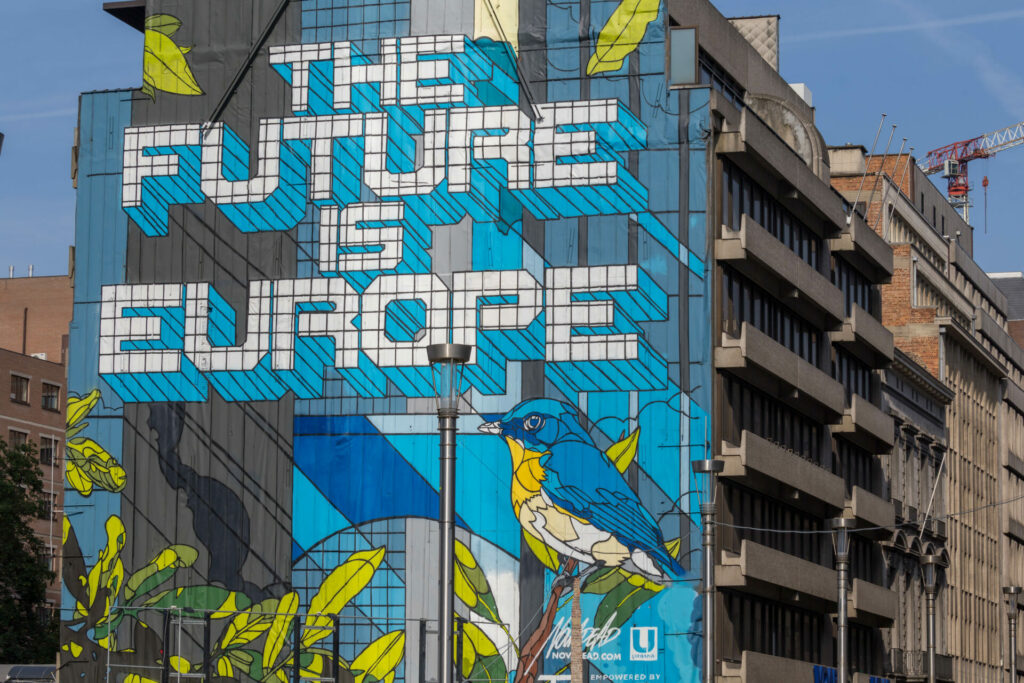What should the future of Europe look like? It is a perennial question, but now EU citizens and lawmakers have been trying to answer it for the past year through discussions at the Conference on the Future of Europe.
After the latest and final plenary session, the results from the consultations have now been published in a document. Under each proposal in the set of 49 detailed proposals, the objective and measures to implement it are stated.
The proposals cover the following themes: Health, European democracy, Migration, Values and rights, rule of law, security, Education, culture, youth, Stronger economy, social justice and jobs, Climate change and the environment, EU in the World, Digital Transformation.
Participating European citizens, as well as representatives of the European Parliament, the Council, the Commission and representatives from national parliaments expressed consensus on the proposals.
"Our conference is in its final chapter,” commented Vice-President for Democracy and Demography, Dubravka Suica, co-chair of the conference who led the European Commission's contribution in implementing the conference.
“I am proud to say that by working together during this innovative process in deliberative democracy, we are collectively delivering concrete results. Our engaged and inspiring citizens have shown us the direction they wish Europe to take. Now it is our task, of the EU Institutions, to make it happen.”
Vice-President Věra Jourová chairing the working group on values, rule of law, fundamental rights and security summarized: “The citizens showed the direction they want the EU to travel. They want more ambitious, decisive and assertive EU, more focused on people's problems and less on its processes. The people want democracy and its values to be actively protected and upheld.”
Climate and green transition
Climate is the key concern, with the recommendations stressing the need to accelerate the transition towards renewable energy in the fight against climate change.
Some proposals call for the EU's Common Agricultural Policy to shift towards more organic farming, the reduction of pesticide use and a call to ensure food security and sustainability.
Furthermore, there was a proposal to better protect biodiversity, landscapes and oceans by eliminating pollution, as well as through more specific measures such as enforcing and extending the ban on single-use plastics.
Healthcare and economy
Health is topical after two years of the Covid-19 pandemic, with participants stressing the need to strengthen healthcare systems and provide universal access to equal and good quality healthcare.
Participants also agreed on wanting greater autonomy for Europe to avoid dependency on third countries, for example when it comes to medicines.
Furthermore, the proposal argues for better access to quality food and education about healthy lifestyles from an early age.
Related News
- EU auditors warn against foreign interference in European elections
- European Commission asked by Ombudsman to clarify debate on EU’s future
- EU Green Deal: Brussels to be climate-neutral by 2030
Participants of the conference underlined the importance of a minimum wage guarantee. There was also a proposal for designing concrete anti-poverty strategies in a bid to reduce inequality and improve social mobility.
In addition, the importance of digitalisation and work, and a healthy work-life balance were also emphasised through proposals such as the right to disconnect.
In terms of the economy, there were calls for a renewed strengthening and enhancing the competitiveness of the single market.
Furthermore, proposals included pushing for an ethical dimension to its trade and investment relations, particularly through greater transparency while also opening up possibilities for European companies abroad.
Joint armed forces
Russia's invasion of Ukraine has highlighted the need to discuss Europe's security and the continent's role in the world. There was a call to strengthen the Common Foreign and Security Policy (CFSP) with a renewed push for Europe to find a unified voice.
The assembly proposed the creation of "joint armed forces" for Europe for 'defensive purposes and to preclude any aggression.'
For new joint forces to be deployed outside the EU, they would need to respect international law and seek approval from the UN Security Council, "without competing with or duplicating NATO and respecting different national relationships with NATO."
Strengthening democracy
Another key proposal is reforming and strengthening Europe's democracy through more citizen initiatives and youth participation.
There were also proposals for improved online communication between institutions and citizens, and a renewed call for citizens to participate in European Parliament elections, by ensuring a closer relationship between voters and elected representatives.
In terms of improving EU decision making, the assembly made suggestions on how decisions should be made by a qualified majority, rather than unanimity, as decisions are often hindered by the right to veto.
Referendums at the European level should be a possibility, according to participants. The European Parliament should be able to launch proposals, currently a prerogative usually reserved for the Commission.
What happens next
In sum, across many different fields there is a pattern of more integration within the EU, but more EU autonomy in the world.
European parties in favour of further integration will be delighted with many of these proposals, while groups in the parliament more inclined towards national autonomy are likely to pull the brakes.
The Conference on the Future of Europe will officially end on 9 May - Europe Day - in Strasbourg.
The final report will be examined by the Parliament, the Council and the Commission, and the institutions will examine how to follow up on them.

